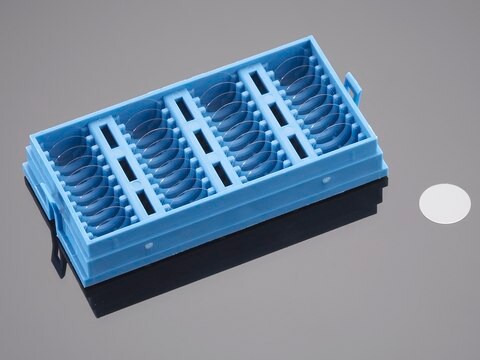Recommended Products
Product Name
I-10, 89031605
biological source
mouse testis
growth mode
Adherent
karyotype
2n = 40, hyperdiploid
morphology
Epithelial
products
Steroids
receptors
Not specified
technique(s)
cell culture | mammalian: suitable
relevant disease(s)
cancer
shipped in
dry ice
storage temp.
−196°C
Cell Line Origin
Mouse BALB/c Leydig cell testicular tumour
Cell Line Description
Derived from a Leydig cell testicular tumour of a BALB/c mouse. The cells secrete steroids; this increases at saturation density. Secretion should be retained for over 50 passages. Exposure to 0.00001M cAMP stimulates secretion 4-5 fold. The major products are progesterone and its derivative 20 α-hydroxy-4-pregnen-3-one. It does not respond to interstitial cell stimulating hormone (ICSH) but is stimulated by cyclic adenosine monophosphate (AMP).
Application
Tumourigenicity studies
Culture Medium
Ham′s F10 + 2mM Glutamine + 15% Horse Serum (HS) + 2.5% Foetal Bovine Serum (FBS).
Subculture Routine
Split sub-confluent cultures (70-80%) 1:2 i.e. seeding at 6x10,000 cells/cm2 using 0.25% trypsin; 5% CO2; 37°C.
Other Notes
Additional freight & handling charges may be applicable for Asia-Pacific shipments. Please check with your local Customer Service representative for more information.
Choose from one of the most recent versions:
Certificates of Analysis (COA)
Lot/Batch Number
It looks like we've run into a problem, but you can still download Certificates of Analysis from our Documents section.
If you need assistance, please contact Customer Support.
Already Own This Product?
Find documentation for the products that you have recently purchased in the Document Library.
Our team of scientists has experience in all areas of research including Life Science, Material Science, Chemical Synthesis, Chromatography, Analytical and many others.
Contact Technical Service

